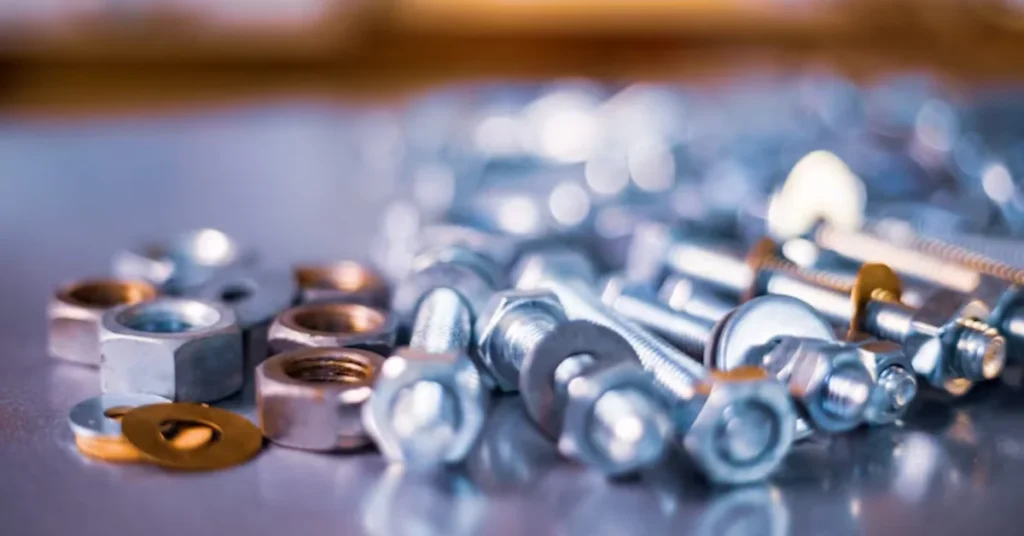Key Takeaways
- Automotive fasteners are used to hold together vehicle components tightly and securely.
- Fastener quality can have an impact on safety and performance.
- New materials and technologies in rapid succession are improving design of fasteners.
Understanding Automotive Fasteners
Automotive fasteners are vital in both the construction and maintenance of vehicles. These little mighty components hold together the framework of a vehicle, keeping each part structurally sound during operation. They are the unsung heroes that keep your car running and safe, holding together everything from critical engine parts to the panels that give your vehicle its shape. Everything from the steering system to the exhaust pipe needs exact fastening in order to function properly.
Without these important pieces, a vehicle could be severely compromised in its integrity and might pose some serious safety risks. Proper installation and maintenance of these fasteners are thus quite necessary. It is this kind of attention to detail that protects not only the performance of the vehicle but also the safety of all passengers aboard.
Types of Fasteners Used in Vehicles
All over the motor car, there are types of fasteners for different purposes and uses. The commonest are bolts, screws, washers, and nuts; all these have various usages. For instance, bolts are normally used for heavier and load-carrying components such as chassis and suspension systems. They are manufactured to bear enormous forces in addition to vibrations without yielding to them.
While screws, on the other hand, provide a firm hold, in most cases, to non-load-bearing parts like interior fittings and body panels where precision and ease of removal are required.
Washers serve the great purpose of distributing load on surfaces, hence preventing any kind of stress concentration that might lead to material failure. Nuts are widely used with bolts in many applications that lock hardware in place, so that it may not vibrate loose during operations. The type of fastener selected will be depending upon understanding the materials and stresses involved where applied, so each component is held properly.
Quality of Fasteners and Safety of Vehicles
High-quality automotive fasteners cannot be underrated. The components ensure strengths and durability for withstanding the severe conditions that come from different driving exposure. In as much as their low-quality alternatives are cheaper, they degrade rapidly and may even result in loose or detached parts. Such failures are not only irritations but could rise to major safety concerns once key components of the vehicle fail while in operation.
It is reported that up to 30% of all vehicle recalls are due to defective fasteners or their improper installation. The quality of fasteners used is thus an important factor in the safety of the entire vehicle, since poor-quality fasteners may lead to accidents and deterioration in performance over time. These numbers underpin the importance of using reliable fasteners that meet stringent quality standards to ensure the vehicle operates as intended.
Fastener Technology Innovations
The automotive industry embraces new technological changes in different ways and is constantly reinventing itself, and fasteners are not an exception. Modern fasteners have become really different, marked by the introduction of new, lightweight materials like aluminum and carbon fiber. These materials not only contribute to much better strength and durability but also contribute much to decreasing the weight of the car, which in its turn improves the fuel economy and lowers emissions to correspond to current global ecological standards.
This evolution has catalyzed a transformation within the industry, enabling manufacturers to make safer and more efficient vehicles without sacrificing performance. These advanced fasteners are designed to resist extreme weather conditions and various mechanical stresses, thus offering a sustainable edge to modern vehicle design.
Fasteners, Standards, and Industry Regulations
With a view to ensuring safety and durability in the auto-industry all over the world, production and application of automotive fasteners are put under strict observation. For this, international standards ensure a consistent level of quality, performance, and safety in these components so that consumers would be protected against risks related to poor materials.
These regulations have to be strictly adhered to, and manufacturers can be faced with huge fines, recall costs not mentioned, and serious damage to reputation and financial status. It is, therefore, of utmost importance that understanding and conforming to these industry standards by stakeholders in the production, repair, and maintenance of vehicles go a long way toward assuring protection to business integrity and consumer well-being.
Common Fastener Issues and Solutions
However, with their solid build and construction, fasteners are also very prone to several conditions that can affect their service and efficiency in holding vehicle parts together, such as corrosion, fatigue, and incorrect installation. The corrosive surroundings, which are impossible to completely avoid given the climate changes and road treatments, contribute to rust that impairs a fastener’s integrity and functional ability. The only risks that can be avoided or minimized are damage during installation and regular inspections, which would extend the life and efficiency of fasteners in your vehicle. Applying special coatings and using corrosion-resistant materials in manufacturing are good ways to prevent rust. Furthermore, correct torque applied at installation is very important to avoid undue stress and prolong the life of fasteners.
Practical Tips for Fastener Maintenance
- Fasteners should be periodically inspected for wear and damage. Small problems can become big ones if neglected that could compromise vehicle safety.
- Provide for an anti-corrosive coating on the materials or select the materials based on their anti-rust properties. For, over a period of time, corrosion may seriously weaken the fasteners and reduce their performance effectiveness.
- Ensure torque settings are appropriate at installation to prevent over- or under-tightening conditions. Both of these conditions can result in the failure of the fastener, and adherence to the manufacturer’s recommendations is crucial in order to ensure the integrity of the fastener.







